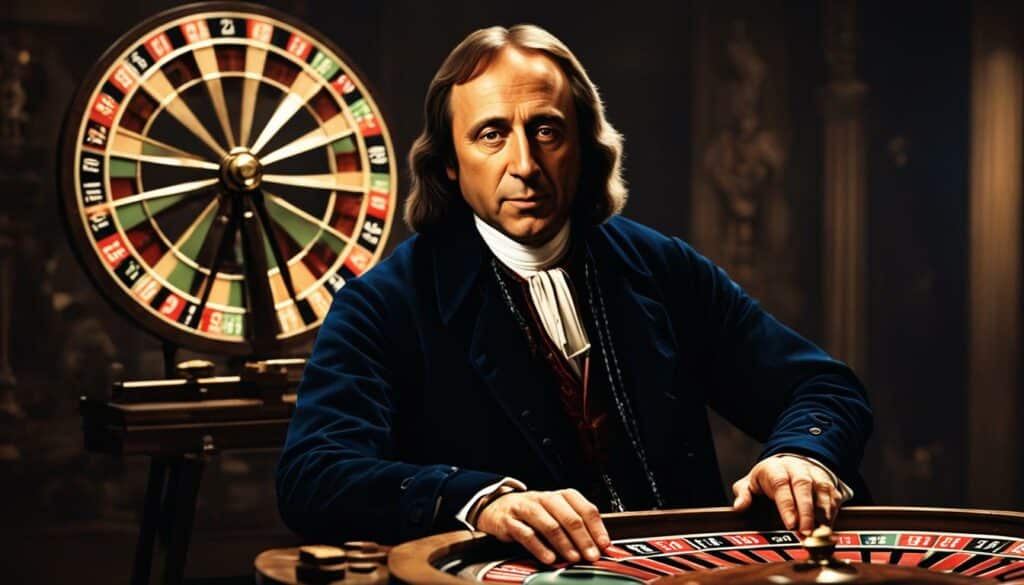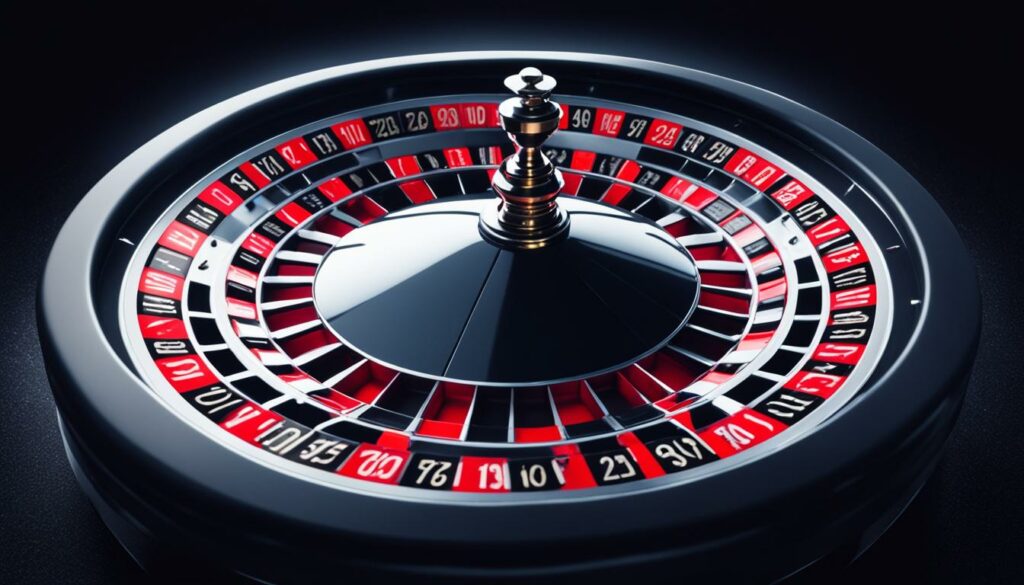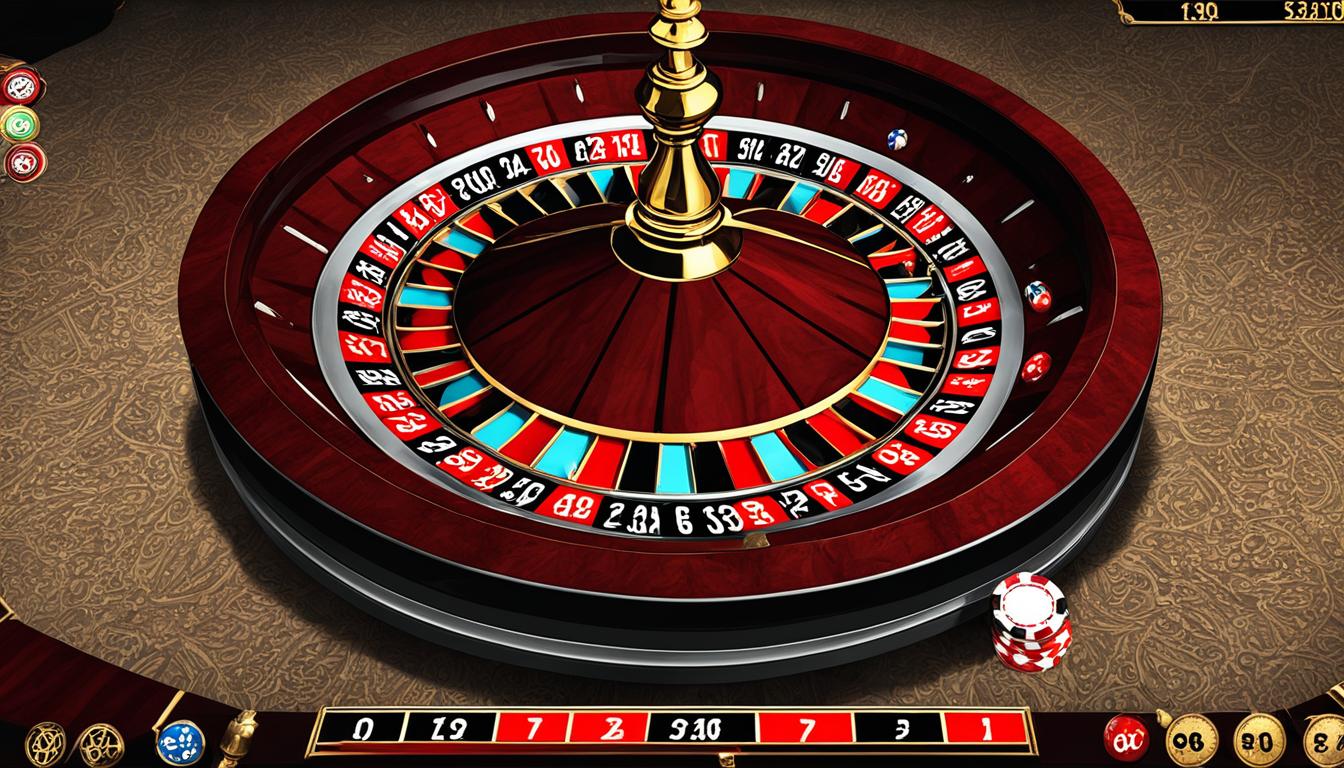When it comes to casino staples, roulette is among the most recognizable and beloved games. A symbol of sophistication and chance, this classic game has enthralled players for centuries. But who invented roulette, and what is the history behind this timeless game of chance? In this article, we will explore the origins of roulette, tracing its evolution throughout history.
Roulette’s origins are shrouded in mystery, with many conflicting theories about who first created the game. Some believe it was a byproduct of early Chinese and Roman games of chance, while others attribute its invention to the French.
Regardless of its precise origins, roulette has undoubtedly undergone significant changes over the centuries, evolving into the game we know today. In the following sections, we’ll explore roulette’s early roots, its evolution over time, and the people who made it all possible. So join us on a journey through the history of roulette, as we unveil the enigmatic creator behind this iconic casino game and shed light on its development over time.
The Early Origins of Roulette
The origin of roulette is a topic of much debate among historians, but it is widely believed to have originated in ancient civilizations such as Rome and Greece. Some theories suggest that the game was a result of soldiers spinning their shields in a circle and betting on which section it would land.
Early versions of the game also appear in Buddhist Tibet, where a game involving a wheel and a ball was played for fortune and often used in ritual practices. However, it was not until the 17th century that a game resembling modern-day roulette appeared in Europe.
One of the earliest versions of roulette was known as Roly Poly, and it was played in 18th century England where a ball was spun around a circular track and players bet on where it would land. Other versions of the game, including the Italian game of Hoca and the French game of Biribi, also used a wheel and ball for betting purposes.
These early gambling games laid the foundation for the roulette we know today. In fact, it was the French who introduced the game to the rest of Europe after they began playing roulette in Parisian casinos in the late 1700s. From there, the game spread to other parts of the world and gained popularity among gamblers everywhere.
The Evolution of Roulette
Over time, roulette has undergone significant changes that have cemented its position as one of the most popular casino games worldwide. The evolution of this iconic game has been influenced by several factors, including its early beginnings, the contributions of notable personalities, and changes made throughout its development.
The game’s evolution commenced with its early introduction in France and slowly spread to other parts of Europe. During this period, there were several versions of the game, with variations in the number of pockets, the addition of the double-zero pocket, and its overall gameplay.
Later on, the contributions of inventors such as Blaise Pascal and Francois and Louis Blanc further propelled the game’s evolution. Pascal’s mathematical expertise influenced the initial design of the roulette wheel, while the Blanc brothers’ introduction of the single-zero roulette wheel revolutionized gameplay and created the standard version of the game that we know today.
| Game Feature | Early Origins | 18th Century European Roulette | Modern-Day Roulette |
|---|---|---|---|
| Number of Pockets | Up to 40 | Up to 38 (Double-zero added) | 37 or 38 (Single-zero or double-zero) |
| Wheel Type | Vertical | Horizontal | Horizontal |
| Gameplay | Different for each variant | Similar to modern-day roulette | Similar to 18th-century roulette with added variations |
In modern times, roulette has continued to evolve, with technological advancements creating new opportunities for developers to create innovative versions of the game. Today, there are different variations of roulette available, each with its unique features, betting options, and gameplay. With such a broad selection, players worldwide can enjoy roulette in all its diversity, ensuring the game remains a beloved casino game today and in the future.
The Contribution of Blaise Pascal
Blaise Pascal, known for his significant contributions to mathematics, physics, and philosophy, also played a crucial role in the creation of roulette. Pascal’s mathematical expertise and knowledge of physics proved invaluable in the development of the game, particularly in his invention of the roulette wheel. This invention incorporated his understanding of perpetual motion, an idea that inspired the creation of a frictionless wheel used in roulette.

Pascal’s involvement in the creation of roulette can be traced back to his attempt to create a perpetual motion machine. While his invention was not entirely successful, it did inspire the creation of a wheel that would eventually become a staple in casinos around the world. Pascal’s invention led to the development of the early roulette game in France, which featured both the single and double zero slots found in modern-day roulette wheels.
Although Pascal’s contribution to roulette was significant, his involvement in the game’s invention is shrouded in mystery. Some sources suggest that he created the game while others speculate that he modified an existing game. Regardless of his exact involvement, Pascal undoubtedly played a critical role in the creation of one of the most popular casino games to date.
Roulette’s Introduction to Casinos
Despite its mysterious origins, roulette gained immense popularity among gamblers in France during the 18th century. It was only natural that the game would soon find its way into casinos across Europe, where it continued to grow in popularity and evolve over time.
As roulette’s popularity spread, game developers and roulette enthusiasts continued to experiment with various formats and rule changes. This contributed to the game’s ongoing development, making it even more exciting and compelling for players.
The addition of the single-zero wheel by François and Louis Blanc in the mid-19th century revolutionized the game and brought it to new heights. This unique version of the game offered players better odds and paved the way for roulette’s continued growth and success.

The roulette wheel, with its unique numbers and colors, quickly became an iconic sight in casinos around the world. Today, roulette remains one of the most popular casino games, a testament to the ingenuity and creativity of its early developers and the enduring fascination of players worldwide.
The Influence of François and Louis Blanc
François and Louis Blanc were two French brothers who left a significant impact on roulette’s development. Their influence can be traced back to the mid-19th century, where they made several changes to the game, including the addition of the single-zero pocket which reduced the house edge.
At the time, gambling was illegal in France, so the Blanc brothers moved to Germany and opened a casino that featured their version of roulette. The single-zero version of the game quickly gained popularity, spreading throughout Europe and eventually making its way to the United States.
The addition of the single-zero pocket not only made the game more attractive to players but also boosted the casinos’ profits. François and Louis Blanc’s contributions to roulette’s development transformed the game into the version commonly played today.
“The Blanc brothers’ version of roulette with a single zero pocket was embraced by gamblers worldwide and ultimately reshaped the game.”
Roulette Today: Global Popularity
Today, roulette is a beloved casino game played across the globe, from Las Vegas to Macau, Monaco to Monte Carlo. Its origins may be mysterious, but its popularity is undeniable. The game has transcended geographical boundaries and has become a staple in both online and land-based casinos.
Part of roulette’s appeal lies in its simplicity. The game’s rules are easy to understand, and its straightforward gameplay makes it accessible to players of all skill levels. It’s also a game of chance, adding an element of excitement and unpredictability to each spin of the wheel.
“Roulette is the perfect example of a casino game that combines simplicity with excitement. It’s no wonder it’s so popular around the world.”
Over the years, roulette has evolved and adapted to keep up with changing times and player demands. Online versions of the game are now widely available, allowing players to enjoy their favorite game from the comfort of their homes.
Roulette’s Enduring Legacy
Whether played in a brick-and-mortar casino or online, roulette’s enduring popularity attests to its status as one of the most iconic and beloved casino games of all time. As we’ve seen throughout this article, the game has a fascinating history spanning centuries, and its evolution has been shaped by the input of countless inventors, mathematicians, and gaming enthusiasts.
The Column Bet Chronicles: Unveiling the Hidden Secrets of Roulette
Conclusion
In conclusion, the history of roulette is a fascinating journey of innovation and creativity. From ancient gambling games to the modern casino staple, roulette has undergone numerous changes and modifications to become the game we know and love today.
Blaise Pascal’s mathematical expertise and François and Louis Blanc’s contributions were pivotal in shaping the game we play today.
Despite its European origins, roulette has become a global phenomenon with a massive following worldwide. Players from all walks of life and backgrounds are drawn to the game’s elegance, simplicity, and potential for big wins.
In summary, the genesis of roulette may be shrouded in mystery, but its continued success is a testament to its timeless appeal. Whether you’re a seasoned player or a novice, the game of roulette never fails to deliver excitement, entertainment, and the chance to win big.
FAQ
Who invented roulette?
The exact inventor of roulette is unknown, but the game can be traced back to 17th century France.
What is the history of roulette?
Roulette has a rich history dating back centuries, with early versions of the game found in various forms throughout ancient civilizations.
What are the origins of roulette?
Roulette’s origins can be traced back to gambling games played in China and ancient Rome, which eventually evolved into the roulette we know today.
How has roulette developed over time?
Roulette has evolved significantly since its early beginnings, with various changes and additions being made to the game to enhance its appeal and gameplay.
Who was Blaise Pascal and how did he contribute to roulette?
Blaise Pascal was a French mathematician who made important contributions to the development of roulette. His mathematical expertise influenced the game’s design and mechanics.
How did roulette make its way into casinos?
Roulette was introduced to casinos in Europe during the 18th century, steadily gaining popularity among gamblers and becoming a staple casino game.
What impact did François and Louis Blanc have on roulette?
François and Louis Blanc, two French brothers, made significant contributions to the development of roulette. They introduced the single-zero wheel, which made the game more favorable for players.
Why is roulette so popular worldwide today?
Roulette has gained global popularity due to its straightforward gameplay, exciting atmosphere, and the thrill of chance. It has become a beloved casino game enjoyed by players worldwide.












